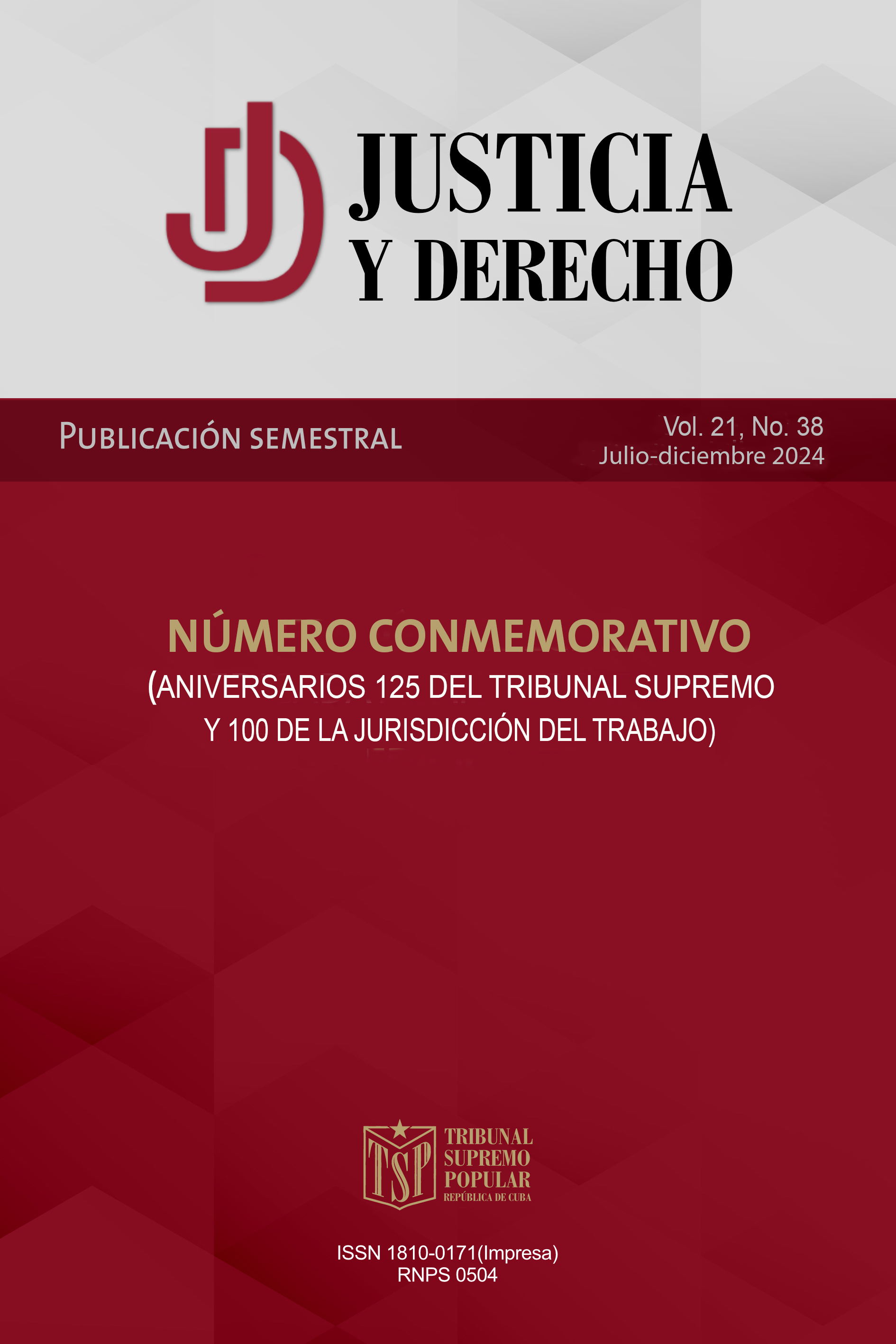Child best interest and presumption of innocence: Irreconciliable principles?
Main Article Content
Abstract
The present work, after a look at theoretical aspects and legal regulation, associated with due process and the principles of presumption of innocence and best interests of the child, offers an approach to the criminal figure of corruption of minors, as an essential element for the protection of the comprehensive development of girls, boys and adolescents. The aforementioned criminal figure is addressed, outlining its current criminal legal regulation, from the bases established by the Constitution of the Republic and the International Convention on the Rights of the Child. Likewise, it illustrates the predominant features of this crime in the judicial processes studied, the need for the harmonious coexistence of both axioms and the limitations that can put it at risk, at the same time it substantiates the importance of a quality evidentiary activity to achieve the desired balance and how it can be achieved.
Downloads
Article Details

This work is licensed under a Creative Commons Attribution-NonCommercial 4.0 International License.
References
Agudelo Ramírez, M. (Enero-junio, 2005). El debido proceso. Opinión Jurídica, 4(7), 89-105. https://revistas.udem.edu.co
Alle Ramos, G. (2016). Constitución y debido proceso en Cuba. Revista de Investigación e Innovación, 1(2), 7–16. https://revistas.utb.edu.ec/index.php/magazine/article/view/46
Bacigalupo Zapater, E. (Febrero, 1988). Presuncion de inocencia, in dubio pro reo y recurso de casación. Anuario de Derecho Penal y Ciencias Penales, (41), 365-386. https://dialnet.unirioja.es
Consejo de Gobierno, Tribunal Supremo Popular. (Diciembre 18, 2023). Instrucción No. 285. GOR-E, (87), 558-561.
Constitución de la República de Cuba. (Abril 10, 2019). GOR-E, (5), 69-116.
Goite Pierre, M. y Mendoza Díaz, J. (2020). El debido proceso penal en el modelo constitucional cubano. UH, (289), 163-186. http://scielo.sld.cu/scielo.php?script=sci_arttext&pid=S0253-92762020000100163
Hoyos, A. (1996). El debido proceso. Temis.
Ley No. 143, «Del proceso penal». (Diciembre 7, 2021). GOR-O, (140), 4095-4251.
Ley No. 151, «Código penal». (Septiembre 1.o, 2022). GOR-O, (93), 2557-2696.
Llobet Rodríguez, J. (2008). Derechos humanos en la justicia penal. Editora Jurídica Continental.
Madrid-Malo, G. (1997). Derechos fundamentales (2.a ed.). 3R Editores.
Oficina del Alto Comisionado de las Naciones Unidas. (2014). Convención sobre los derechos del niño. En Los principales tratados internacionales de derechos humanos, 119-146. ONU.
Organización de Naciones Unidas. (1948). Declaración Universal de derechos humanos. En Instrumentos jurídicos de las Naciones Unidas. https://www.hchr.org
Pérez Fleitas, E. (Marzo, 2012). El debido proceso: Una mirada desde la perspectiva del juez cubano. Contribuciones a las Ciencias Sociales, s.p. www.eumed.net/rev/cccss/19/
Valle Molina, G. (2002). Las garantías constitucionales y el debido proceso en la República de Cuba. HiperPEN 4.0 [repositorio interactivo, Universidad de Camagüey].
XII Congreso internacional de derecho penal. (Septiembre 16-22, 2015). Revue internationale de droit pénal, (86), 537-548. https://doi.org/10.3917/ridp.861.0537
